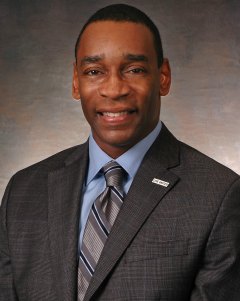
A new study that experts agree has “created a lot more questions than answers” says Georgia has one of the nation’s lowest levels of civic involvement in activities such as voting and volunteering.
The University of Georgia’s Carl Vinson Institute of Government headed the project with several partner organizations to measure how much the state’s citizens participate in their communities.
They came up with a Georgia Civic Health Index that found communities in the state tend to lag below the national average when it comes to voter turnout and attendance at public meetings. Other indicators, such as interactions with neighbors, were about average.
W. Dennis Epps, deputy director of the UGA institute, says he thinks state and local officials will use the results to work toward doing a better job of engaging Georgia citizens.
But in a recent interview with the Atlanta Daily World, Epps noted that the sample size for the study which used Census Bureau statistics was quite small. “This report was meant to be a conversation starter for government and civic organizations,” he said. “This was a glance at the issue that we hope will produce more in depth review and a call to action.”
“I find these study results extremely surprising,” said United Way of Metropolitan Atlanta head Milton Little. “Particularly since we are an organization that depends on thousands of volunteers that run and lead our programs successfully. This certainly bears more study.”
Rebecca Rice, of the Georgia Family Connection Partnership, participated in analyzing the study results. She said that while the study did not break down minority community into specific ethnicities, the percentages of civic involvement of minority and majority communities was essentially equal.
However, she notes that urban civic activity, particularly among those with moderate to higher incomes, tended to be generally more active. “There are greater opportunities, more engagement and better outcomes in the larger urban areas,” she said.
The urban communities were also more likely to reach out in a general way to assist with city-wide problems, while rural groups were more hands on and relied on neighborhood networking and individual support of one another, she noted.
“Don’t forget that the study also included the millennial population,” she said, ruefully. “Sadly, we are a problematic group that is uniquely passive and disengaged.”
The Census Bureau produces the numbers for analysis annually, Epps said, which allows regular updates and ongoing discussion.
